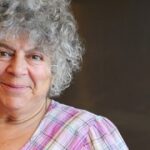Nelson Mandela was a prominent anti-apartheid activist, politician, and philanthropist who became the first democratically elected President of South Africa. He is widely regarded as one of the most influential leaders of the 20th century and a symbol of freedom and equality.
Nelson Rolihlahla Mandela was born on July 18, 1918, in the village of Mvezo, in the Transkei region of South Africa. He belonged to the Thembu royal family, and his father served as a chief. Mandela grew up in a rural area and was exposed to the injustices of apartheid, a system of racial segregation and discrimination enforced by the South African government.
In his early years, Mandela attended a local missionary school, where he received his English name, Nelson. Later, he pursued his education at the University of Fort Hare, the only higher education institution that admitted black students at the time. He became involved in student activism and joined the African National Congress (ANC), a political organization that fought for the rights of black South Africans.
Mandela’s activism against apartheid intensified in the 1940s. He became a leading member of the ANC Youth League and advocated for nonviolent resistance against the discriminatory policies of the government. However, as the apartheid regime became increasingly oppressive, Mandela and his comrades realized that peaceful protests alone were insufficient.
In 1961, Mandela co-founded Umkhonto we Sizwe (MK), the armed wing of the ANC, to engage in acts of sabotage against government targets. MK’s activities were aimed at disrupting the apartheid regime while avoiding harm to civilians. Mandela traveled abroad to receive military training and establish relationships with international supporters of the anti-apartheid movement.
In 1962, Mandela was arrested and charged with sabotage and conspiracy to overthrow the government. He was sentenced to life imprisonment and spent the next 27 years behind bars, primarily in the notorious Robben Island prison. During his incarceration, Mandela became a global symbol of the struggle against apartheid. His imprisonment also galvanized international support for the anti-apartheid movement.
Mandela was released from prison on February 11, 1990, after intense international pressure and negotiations with the South African government. Following his release, he played a crucial role in the transition to democracy in South Africa. Mandela and President F.W. de Klerk worked together to dismantle the apartheid system and establish a multiracial democracy.
In 1994, South Africa held its first democratic elections, and Mandela became the country’s first black President. As President, Mandela focused on reconciliation and healing the deep wounds caused by apartheid. He initiated the Truth and Reconciliation Commission, which aimed to address the human rights violations of the past and promote national unity.
After his presidency, Mandela remained active in public life, advocating for social justice, HIV/AIDS awareness, and education. He received numerous international awards, including the Nobel Peace Prize in 1993. Mandela passed away on December 5, 2013, but his legacy as a champion of human rights and equality continues to inspire people around the world.










